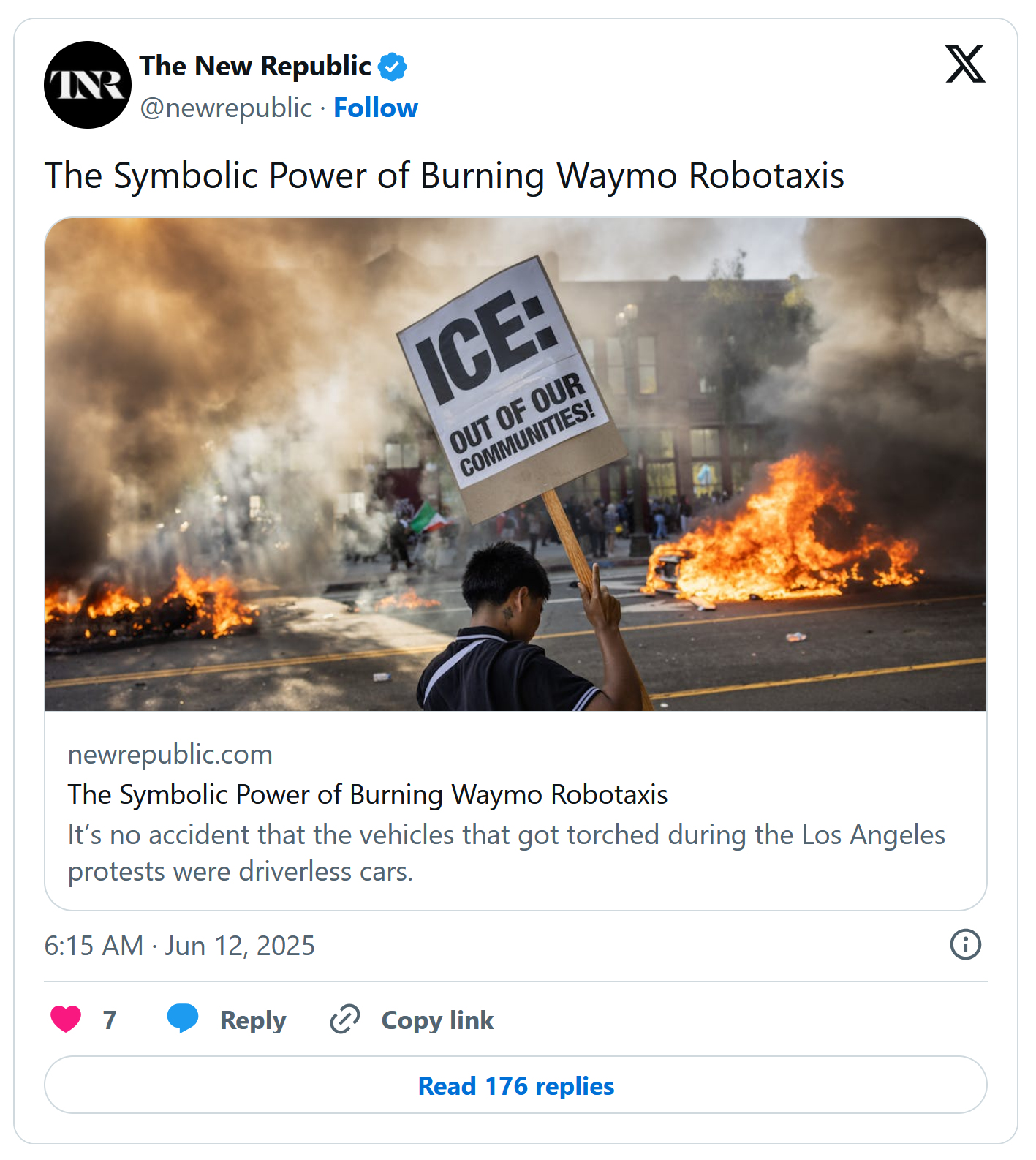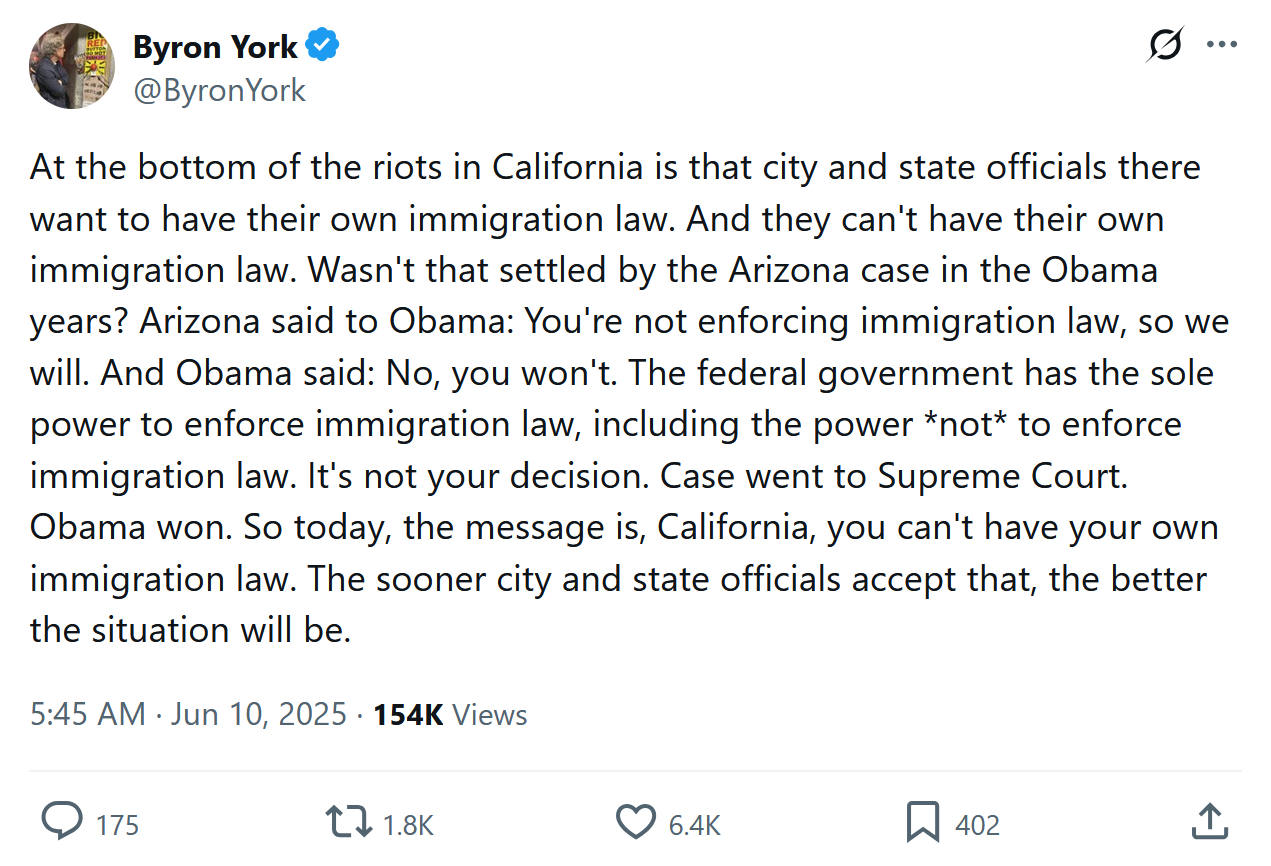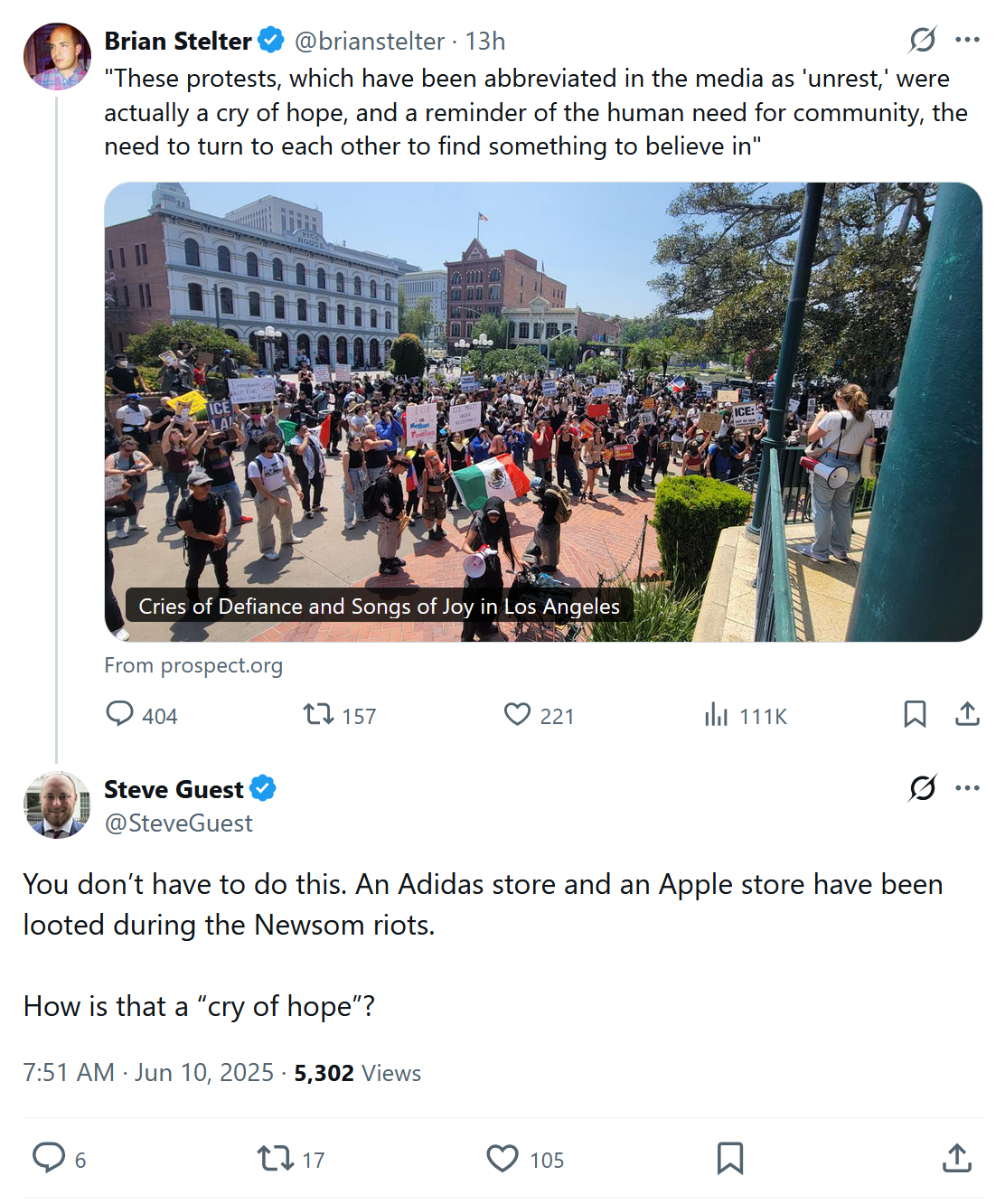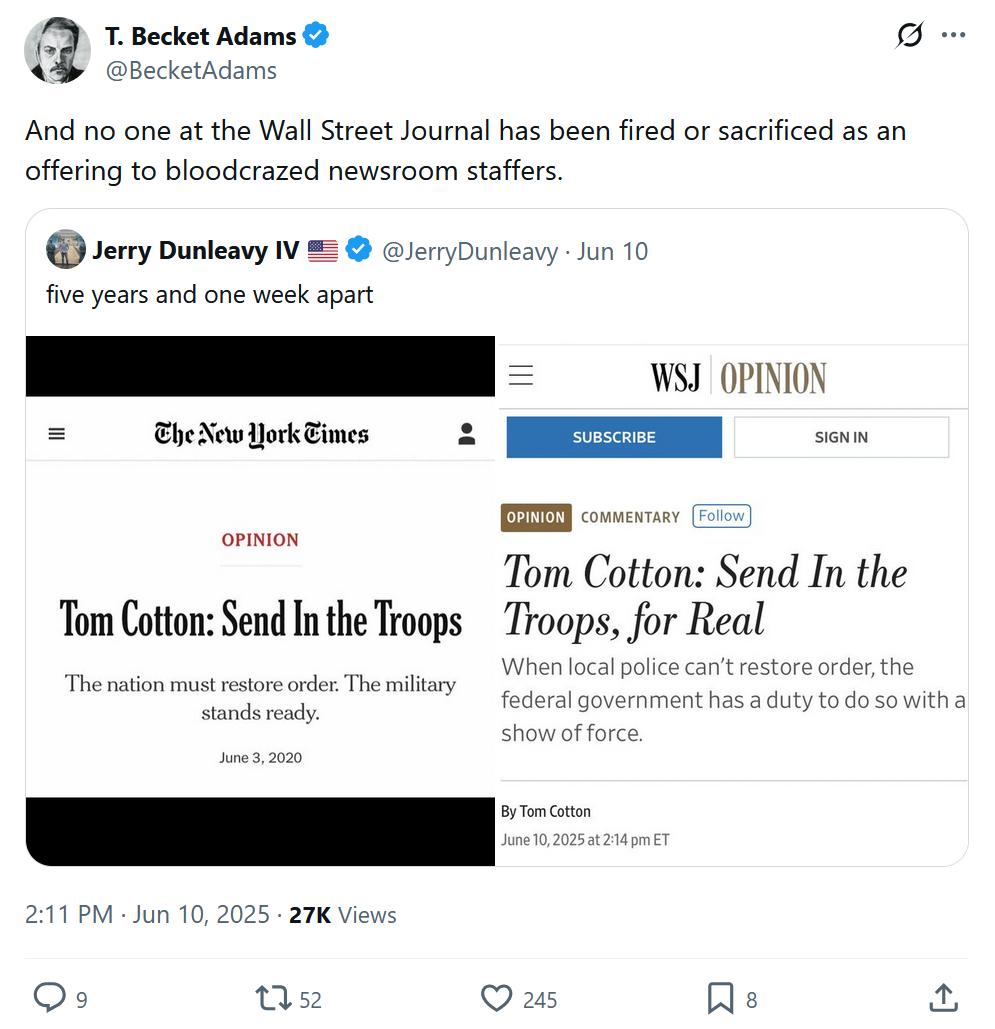There’s no telling precisely why protesters have targeted Waymos in recent days; people tend not to publicly volunteer explanations for their illegal activities. But there are any number of possible practical and political reasons why they might. Some taking to the streets have reportedly dubbed Waymos “spy cars,” thanks to surveillance footage collected by 360-degree cameras that, as 404 News reported, has previously been obtained and published by the Los Angeles Police Department. Google—Waymo’s parent company—hands over that data upon request, typically via court order, warrant, or subpoena. Like other Silicon Valley firms, Google and its parent company, Alphabet, have either directly or through third parties entered lucrative contracts with the federal government, including ICE. Alphabet CEO Sundar Pichai attended Trump’s inauguration, to which Google donated $1 million. That company also recently removed a pledge in its AI principles to not develop or deploy products that “cause or are likely to cause overall harm.” Alphabet’s cloud computing unit in April expanded its partnership with fellow defense contractor Palantir to allow for the “reliable and responsible deployment of AI solutions” from Anthropic “for sensitive government use cases.” Andreessen Horowitz—the venture capital fund run by Trump ally Marc Andreessen, known as a16z—was also an early investor in Waymo.
Again, nobody really knows why Waymos were vandalized. Maybe they offered a convenient, on-demand way to block traffic that would inconvenience Google executives rather than regular people who need their cars to get to work and the grocery store. While less common in the United States, burning cars are a ubiquitous part of large-scale protests just about everywhere else on the planet. Waymos were vandalized well before recent protests in Los Angeles for a number of reasons laid out by Brian Merchant, the author of Blood in the Machine. Among them seems to be their tendency to honk at each other outside of apartment buildings at 4 a.m.
CBO REFORM PUSH GATHERS STEAM: Rep. Glenn Grothman (R-Wisc.) and a bipartisan coalition of House colleagues are sponsoring the “Stop the Baseline Bloat Act of 2025.” The measure focuses on an admittedly obscure problem — the Congressional Budget Office (CBO) considering emergency spending as permanent — about which most people couldn’t care less.
But that obscurity doesn’t negate the importance of what the Grothman proposal does – banning CBO from including temporary spending in long-term projections. The reason its important is fatter baselines help the legions of congressional sufferers from Federal Spending Addiction (FSA) keep increasing their fixes.
The fact there are co-sponsors from both parties on this one is an encouragement sign that perhaps sanity is mounting a comeback on the House floor.








